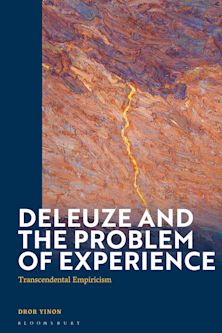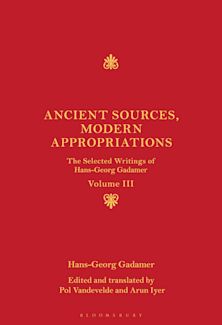- Home
- ACADEMIC
- Philosophy
- Twentieth-Century Philosophy
- The Cultural Politics of Analytic Philosophy
The Cultural Politics of Analytic Philosophy
Britishness and the Spectre of Europe
The Cultural Politics of Analytic Philosophy
Britishness and the Spectre of Europe
You must sign in to add this item to your wishlist. Please sign in or create an account
Description
Thomas L. Akehurst thus identifies in this political critique of continental philosophy the origins of the hugely significant faultline between analytic and continental thought, an aspect of twentieth-century philosophy that is still poorly understood.
The book also uncovers a tripartite alliance in British analytic philosophy, between nation, political virtue and philosophical method. In revealing this structure behind the assumptions of certain analytical thinkers, Akehurst challenges the conventional wisdom that sees analytic philosophy as a semi-detached narrowly academic pursuit. On the contrary, this important book suggests that the analytic philosophers were espousing a national philosophy, one they believed operated in harmony with British thinking and the British values of liberty and tolerance.
Table of Contents
1. Nazi Philosophy
2. The Expulsion of the Invaders
3. Philosophical Method: Virtue vs. Vice
4. The Virtuous Tradition: Analysis, Liberalism, Englishness
Epilogue
Bibliography
Index
Product details
| Published | Oct 20 2011 |
|---|---|
| Format | Ebook (Epub & Mobi) |
| Edition | 1st |
| Extent | 220 |
| ISBN | 9781441109842 |
| Imprint | Continuum |
| Series | Continuum Studies in British Philosophy |
| Publisher | Bloomsbury Publishing |
About the contributors
Reviews
-
'Akehurst's Cultural Politics offers a skilfully constructed, illuminating and much needed historical study of the attitudes of British analytic philosophers towards the styles of thought associated with their 'continental' counterparts.'
Studies in Social and Political Thought
-
The impact of the First World War on the subsequent development of philosophy is relatively under-studied. Akehurst's valuable contribution calls for further work on this topic, and particularly on the impact of this international controversy on the subsequent simultaneous rejection of idealistic movements throughout the world, and not only in Britain.
International Journal of Philosophical Studies


































